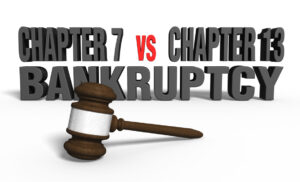
An estimated 10 million American workers and their family members currently receive Social Security Disability Insurance (SSDI) benefits. As with Social Security retirement benefits, making ends meet on SSDI payments alone can be a struggle. The current average benefit is just a little over $1,000 per month. Recipients with significant debts may find themselves considering bankruptcy. These recipients may worry that filing will affect or even end their benefits.
The great majority need not worry. Subject to some narrow exceptions, and provided the recipient takes certain simple precautions discussed below, the disabled worker filing Chapter 7 bankruptcy will not experience an effect on monthly Social Security Disability Income payments or lump sum awards of back payments.
Current Benefit Payments
The treatment of current benefits is clear. By law, monthly Social Security Disability payments are exempt from claims of creditors, although there are exceptions for unpaid federal income taxes, student loans and back child support. A debtor’s monthly benefits are also exempt from seizure by the bankruptcy trustee.
Individuals must file a repayment plan bankruptcy under Chapter 13 of the Bankruptcy Code unless their income falls below specific thresholds. This is known as the “means test.” Although SSDI payments are received each month, they are generally not considered income for this purpose.
As such, virtually any SSDI recipient will pass the means test and may file for Chapter 7 protection. SSDI benefits will generally be taken into account when developing a repayment plan in a Chapter 13 proceeding.
Lump Sum Payments
By some estimates, more than half of all applications for Social Security disability benefits are initially denied by the agency. While a substantial number of decisions are ultimately reversed on appeal, the process can take months or even years. Because most SSDI applicants usually have limited income from other sources (for example, a spouse’s wages), the debts that prompt a successful SSDI claimant to consider bankruptcy are often those accumulated during the appeals process.
If an appeal is successful, the Social Security Administration does pay back benefits for a period prior to the date of your application. The precise date and the amount awarded depend upon when the agency determines you first became disabled. These “lump sum” awards are, by law, treated in bankruptcy the same as monthly benefits. Thus, the awards are not considered assets of the debtor. However, problems can arise if the recipient is still in possession of the funds at the time of his or her bankruptcy filing.
The reason is that many recipients simply deposit the award check in their existing bank accounts. If deposits from other sources are also present in that account, the trustee may claim that the lump sum award has been commingled and may, subject to any applicable exemptions, attempt to seize the account balance. Although the seizure can frequently be reversed, the process creates additional delay and legal fees. There is a simple way to avoid this scenario: establish a separate account into which only SSDI payments (both the lump sum and monthly) are deposited.